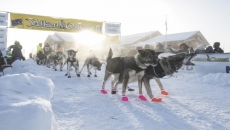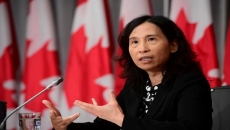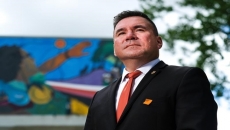The parliamentary budget officer says growth in spending on federal employees has more to do with the amounts spent per worker and not because there are more workers to spend on.
Spending on employees is the largest operating cost on the government's books.
The report from the spending watchdog Thursday says over a 12-year period, spending per full-time employee, or the equivalent in part-time workers, has grown annually by an average of 3.5 per cent.
In dollars, spending rose from $30.6 billion in fiscal year 2006-2007 to $46.1 billion in the fiscal year that closed in March 2019.
Over the same period, the number of full-time employees grew by 0.8 per cent annually, going from 335,000 to 369,000.
Part of the flatter growth in employees had to do with cuts to the public service during the four years the previous Conservative government had a majority mandate, and slow growth during the Trudeau Liberals' first two years in power.
By comparison, the report says private-sector employment grew by 1.1 per cent between 2006 and 2019, and the average annual rate of inflation was 1.7 per cent.
The report from the budget office says compensation grew, on average, by 2.1 per cent each year. Salaries and wages rose roughly in line with inflation.
Growth was faster for so-called "other payments," such as overtime, bonuses and contributions to hospital, medical and disability insurance plans, which grew at an annual average of 2.9 per cent.
"Over the past 12 years, growth in personnel spending was mainly due to higher spending per-employee, not hiring growth," the report says.
The report also says that the largest 10 departments, which include National Defence, the Canada Revenue Agency, RCMP, and Employment and Social Development Canada, represent 70 per cent of spending on personnel.
They have also contributed the most to the increase in total pay, but still spend less per employee than the average.






